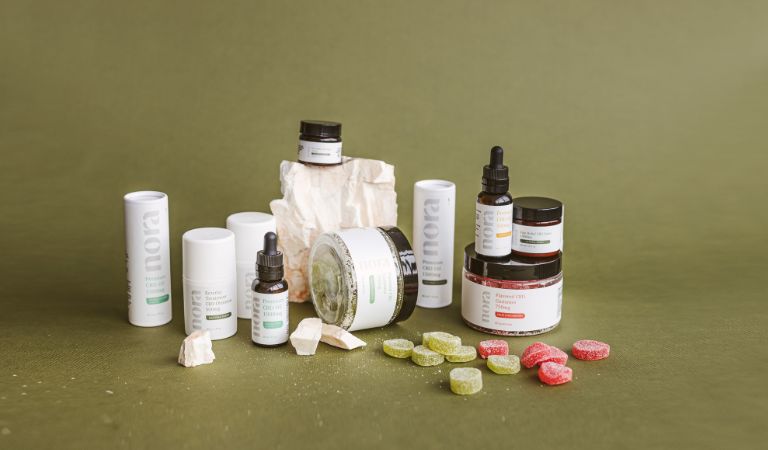Delta 8 THC: Is It a Natural Cannabinoid Or Synthetic Compound?

In a world where the cannabis industry continues to evolve, new compounds and products emerge, captivating both enthusiasts and researchers alike. One such compound that has sparked considerable interest is Delta-8 THC. As discussions around its properties and effects unfold, an intriguing question arises: Is Delta-8 THC natural or synthetic? It’s a question that piques the curiosity of many, prompting us to explore its origins and composition. In this article, we’ll delve into the depths of this topic, shedding light on the nature of Delta-8 THC. So, if you want to know more about this compound, keep reading!
What Is Delta 8 THC?
Delta-8 THC, short for Delta-8-tetrahydrocannabinol, is a naturally occurring cannabinoid in cannabis plants. This unique compound has gained attention for its potential therapeutic benefits, including alleviating anxiety, nausea, and pain. It shares similarities with the more well-known Delta-9 THC, known for its psychoactive effects.
However, emerging research indicates that Delta-8 THC exhibits a slightly less potent binding affinity to the CB1 receptor compared to Delta-9 THC.
According to Linda Klumpers, co-founder of Verdient Science, a pharmacology consulting company specializing in cannabis-based medicines, Delta-8 THC is known to be less potent than its counterpart. Klumpers explains that in order to achieve a similar effect to Delta-9 THC, a higher dose of Delta-8 THC is typically required. This suggests that the potency and dosage requirements differ between the two compounds, highlighting the distinct characteristics of Delta-8 THC in comparison to the other compound.
The Natural Existence Of Delta 8 THC
As the cannabis plant grows and develops, some of the Delta-9 THC present in the plant undergoes a natural process called isomerization. During this process, a portion of the Delta-9 THC molecules in the plant converts into Delta-8 THC. It happens due to specific environmental factors like light, temperature, and time. Essentially, the plant’s genetics and surroundings work together, leading to the creation of this compound.
However, Delta-8 THC is typically present in lower quantities compared to Delta-9 THC within the plant, making it more difficult to extract substantial amounts of pure Delta-8 THC directly from the plant.
Researchers and producers have developed extraction and refinement techniques to overcome this challenge of isolating and concentrating Delta-8 THC. These methods can extract and purify the compound, resulting in Delta-8 THC products with higher potency.
The Synthetic Production Of Delta 8 THC
Synthetic Delta-8 THC is created through laboratory processes rather than being derived directly from cannabis plants. To do so, chemists utilize various chemical reactions and techniques. One common method involves starting with CBD (cannabidiol) extracted from hemp plants and converting it into Delta-8 THC through a series of controlled chemical transformations.
These laboratory processes allow for precise control over the production of Delta-8 THC. By manipulating the molecular structure, chemists can create synthetic Delta-8 THC with specific characteristics and purity levels.
The synthetic production of Delta-8 THC can offer certain advantages. For instance, it allows for consistent and reliable production, ensuring that each batch meets certain quality standards. Additionally, synthetic production can provide a more accessible and cost-effective way to obtain Delta-8 THC, especially in regions where cannabis cultivation is restricted.
Concerns With Synthetic Cannabinoids
While synthetic production can offer certain advantages, it’s important to be aware of potential drawbacks and considerations.
One of the primary concerns with synthetic cannabinoids is the lack of regulation and quality control. Since synthetic compounds are created in labs, there is a risk of variability in their composition and purity. This can lead to inconsistencies in potency and potential health risks.
Furthermore, some synthetic cannabinoids have been associated with adverse effects and even serious health complications. The chemical structures of synthetic compounds can differ from their natural counterparts, leading to unpredictable interactions within the body. This unpredictability raises concerns about safety and potential long-term consequences.
Additionally, the fast-paced nature of the illicit market can make it difficult to keep up with emerging synthetic compounds. New variations and analogs can be developed and distributed without adequate research or understanding of their effects. This lack of information poses potential risks to consumers.
It’s crucial to highlight the importance of sourcing synthetic cannabinoids from reputable and trusted manufacturers. Consumers can mitigate the risks associated with synthetic compounds by choosing products from reliable sources.
Is Delta-8 THC Legal?
The appeal of Delta-8-THC lies not only in its purportedly milder psychoactive effects but also in its unique legal status.
The compound gained popularity after the 2018 Farm Bill legalized hemp cultivation. Unlike marijuana, hemp does not naturally produce Delta-9-THC, the primary psychoactive compound.
The Farm Bill established that hemp could be legally grown as long as it contained less than 0.3 percent THC. However, an oversight occurred in the bill’s language, as it specifically defined THC as Delta-9-THC, which remains federally illegal. This unintended definition created a market opportunity for Delta-8 THC.
Since Delta-8 THC occurs in minute quantities in both hemp and marijuana plants, manufacturers have discovered a way to derive it from another significant cannabis compound: CBD. Hemp plants contain substantial amounts of CBD, and proponents argue that since CBD is legal, Delta-8 THC derived from it also falls within the legal framework.
Through this interpretation, manufacturers assert that Delta-8-THC remains compliant with existing regulations. As a result, this compound has gained traction as a legally accessible alternative to its more regulated counterparts.
The Takeaway
To wrap it up, Delta-8 THC offers choices between natural and synthetic products. Each option comes with its own distinct qualities and factors to keep in mind.
When it comes to natural Delta-8 THC, variations in potency and availability can arise due to the tricky task of extracting substantial amounts from the plant. On the other hand, the synthetic compound offers reliable production and easy accessibility.
However, being cautious about regulations, quality control, and potential health risks linked to these newly developed compounds is important. It’s a balancing act of pros and cons when choosing between Delta-8 THC products.
So, whether you go natural or synthetic, stay informed, make wise choices, and prioritize your well-being.
